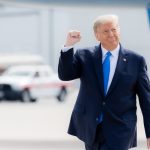A damaging behind-the-scenes revelation is sending shockwaves through the political landscape, especially for those who champion free speech. The recent admission from Mark Zuckerberg, CEO of Meta, has peeled back the curtain on how the Biden-Harris administration, through notable ally Rob Flaherty, aggressively pressured tech giants like Facebook and Google to suppress any speech deemed undesirable, particularly around COVID-19. As Flaherty has ascended to the role of Deputy Campaign Manager for Kamala Harris, it raises serious questions about the future of free expression under a potential Harris-Walz administration.
Flaherty’s previous role as the White House Director of Digital Strategy has now come into sharp relief as he played a key part in orchestrating a crackdown on what the left labels “misinformation.” His efforts have been chronicled, highlighting an array of tactics designed to control the narrative on vaccines and COVID-19. The public should take note that this isn’t just about public health measures; it’s an administration intent on muzzling opposing views, all under the guise of combating misinformation. The implications are chilling for anyone who values a marketplace of ideas.
Kamala Harris' Campaign Manager Was the Point Man for Pushing Facebook to Censor Speech https://t.co/eX8aI2t9ED
— Andrew Malcolm (@AHMalcolm) August 30, 2024
JD Vance, the Republican vice-presidential candidate, is already honing in on this issue. He understands that the Harris-Walz team is on shaky ground, especially regarding its stance on free speech. With Vance at the helm of the opposition, he has the potential to illuminate the numerous threats posed by the current administration’s policies. If they manage to secure the presidency, it could fundamentally alter the landscape of free speech in America, making their campaign trail rife with vulnerabilities just waiting to be exposed.
The combination of a governor who once established a COVID snitch hotline and a vice president whose campaign manager has a demonstrated history of stifling speech creates a perfect storm of hypocrisy and ineptitude. Is this truly an approach to governance, or is it naïve optimism disguised as a campaign strategy? The optics here are terrible; it paints a picture of leadership that is more interested in censorship than in fostering an environment of open dialogue.
Flaherty’s recent performance before the House Committee on the Weaponization of Federal Government showcased his inability to grasp fundamental First Amendment rights or to acknowledge his prior commitments to censoring speech. He evaded accountability at every turn, showcasing a troubling pattern of avoidance that threatens to undermine citizens’ rights. Furthermore, the revelations of his overt requests for privileged access to target users on platforms raise significant ethical concerns. The entire ordeal serves as a stark reminder of the administration’s priorities: silencing dissent rather than engaging in healthy, democratic debate.




